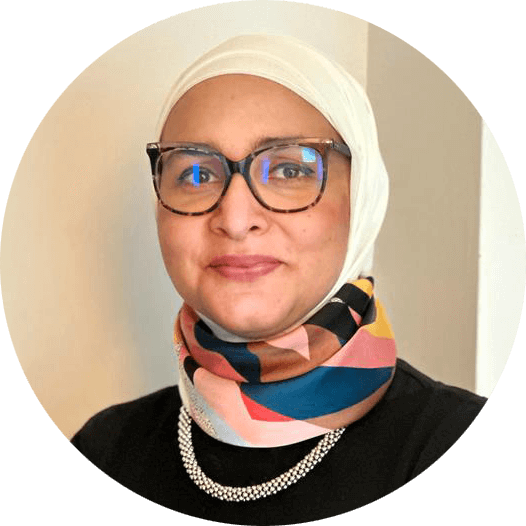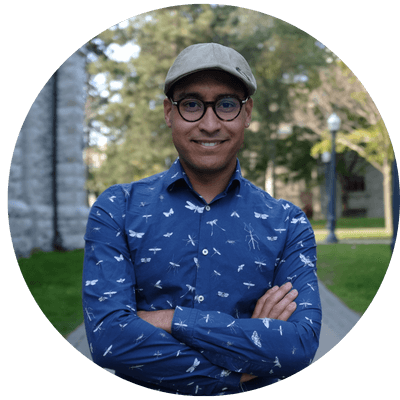The results are in! We’re thrilled to announce the recipients of the MAXQDA Research Grants: May 2025 Edition, specifically focused on healthcare and public health. The response was truly overwhelming, with over 120 applications from researchers spanning diverse disciplines and regions. Your submitted projects showcased the remarkable breadth of MAXQDA applications in qualitative healthcare research. From exploring the lived experiences of marginalized populations to investigating the role of technology in healthcare, these projects demonstrate the breadth of applications for MAXQDA in qualitative research across a wide spectrum of healthcare-related issues.
The high quality and relevance of the applications made the selection process both challenging and rewarding. We are delighted to present the selected projects, which stand as prime examples of the outstanding research being conducted globally with MAXQDA. A heartfelt thank you to all applicants for your valuable contributions and your ongoing dedication to advancing research in healthcare and public health. We can’t wait to see the impact of these groundbreaking studies!
The recipients of the MAXQDA Research Grants:
 Aya Elghandour
Aya Elghandour(Architect and PhD Candidate, University of Sheffield, School of Architecture, UK)
Integrating Health and Financial Wellbeing into Life Cycle Costing for Affordable Housing Design
We are deeply impressed by this timely and impactful research, which reimagines housing affordability through a public health lens. By examining how Life-Cycle Costing (LCC) can be redefined to consider long-term health and financial well-being, the project provides a compelling response to the social and economic consequences of substandard housing.
It highlights a critical research gap, namely, how decisions made at the design stage — often driven by narrow cost metrics — can have far-reaching health implications, particularly for vulnerable populations. This research addresses a significant shortcoming of Life-Cycle Costing (LCC): its inability to consider the long-term health consequences of construction projects. Although LCC could support the design of healthier housing, it is often used in a narrow way to optimize short-term financial returns. Consequently, critical features such as insulation and ventilation are undervalued despite their role in preventing illness and reducing national health costs costs. By reframing LCC through a health equity lens, this project emphasizes the necessity of systemic changes to how affordability and design decisions are made, particularly with regard to vulnerable populations.
We were particularly convinced by the thoughtful integration of MAXQDA, which plays a central role in mapping stakeholder perspectives, identifying institutional barriers, and developing a health-informed LCC taxonomy. The planned use of MAXQDA for comparative stakeholder analysis, co-occurrence mapping, and taxonomy validation demonstrates methodological rigour and innovation.
We are delighted to be supporting this exceptional project with our grant, and we are looking forward to following Aya’s future academic endeavours with great interest.
 Dr. Fernan Talamayan
Dr. Fernan Talamayan(Sociologist, Digital Analyst and Social Media Analyst)
Navigating Health in Crisis: Trust and Vaccine Hesitancy during Myanmar’s 2024 Cholera Outbreak
In a pioneering qualitative study, Fernan examined the influence of political instability, misinformation and public mistrust on health behaviors during Myanmar’s 2024 cholera outbreak. Based on interviews, news sources, and social media data analyzed with MAXQDA, the study revealed that widespread distrust of the post-coup government greatly reduced public acceptance of the oral cholera vaccine, even though there was high awareness of the outbreak.
The research highlights that vaccine hesitancy in conflict-affected settings is not primarily due to a lack of knowledge, but is instead rooted in deep-seated political fears, perceived coercion and a collapse in institutional credibility. Themes such as mistrust, rumor-driven resistance, and access disparities emerged from the data, offering a nuanced picture of community responses in a fragmented health environment.
Fernan’s work offers vital lessons: in fragile contexts, effective health interventions must rebuild trust, counter misinformation, and meaningfully engage communities. As such, the study contributes not only to the academic understanding of health behaviour in crisis zones but also calls for a paradigm shift in public health strategy: trust must be treated as a core component of any emergency response.
We are fascinated by this research topic and its thoughtful, community-centred design. The project’s innovative use of qualitative methods to explore the intersection of trust, health, and politics in a conflict-affected setting is both academically and practically relevant. In particular, we were impressed by the strategic use of MAXQDA to analyze social media and news discourse, which added analytical depth and rigour to a complex information environment. We are delighted to award Fernan our #ResearchForChange grant and look forward to seeing the impact of this important work on future health interventions in Myanmar and beyond.
 Zoe Sirotiak
Zoe Sirotiak(PhD Candidate in Immunbiology, Kinesiology and Psychology, Research Assistant, Iowa University, USA)
Understanding Long COVID Experiences in Primary Care through Mixed Methods Analysis
This research project explores the lived experiences of individuals with long-term symptoms of the SARS-CoV-2 virus, focusing on how they navigate primary care systems, the stigma they may encounter, and the impact of these experiences on mental health and overall well-being. Using a convergent mixed methods design, the study combines in-depth interviews with symptom-based surveys to explore how subjective experiences intersect with measurable physical and psychological symptom burdens.
A key innovation of the project is its use of MAXQDA to integrate qualitative and quantitative data. This software enables systematic thematic analysis of interviews and links key themes, such as perceived stigma or quality of care, to survey variables such as fatigue, cognitive impairment, and depression. Using MAXQDA’s visual tools, such as MAXMaps and code co-occurrence matrices, Zoe identified meaningful patterns across datasets, providing a richer, more holistic understanding of the impact of long COVID on patients and their healthcare experiences.
By centering patient narratives and utilizing MAXQDA’s robust analytical capabilities, the study aims to generate practical, evidence-based recommendations for more compassionate and responsive primary care, ultimately providing better support for individuals living with long-term effects of the virus.
The large number of people affected by the long-term effects of the virus, coupled with the limited medical support available, made this research emotionally moving to us. We are proud to support it with our grant.
Honourable Mentions
Our honourable mentions also presented some truly fascinating projects that made a deep impression on us. We would like to shine a spotlight on them here and extend our sincere thanks for their valuable contributions. Thank you for sharing your inspiring research with us!
The Social Experience of HIV: Seropositivity and Undetectability Among Men Who Have Sex with Men (MSM) in Poland
Bodies, Borders and Belonging: Reproductive Healthcare in Northern Ireland’s Nationalist Imaginaries
Mental Health, Behavioural Change, Innovation und Investment
Reproductive Justice and Public Health in Times of Climate Crisis: An Intersectional Analysis of Youth Policies and Experiences in Latin America and the Global South
The health vulnerability of Amazonian riverside communities in the face of extreme climate events: A Qualitative study
The grant includes
Research Scholarship
A one-time $500 cash scholarship (in the currency of your home banking institution)
Free License
A free one-year license for MAXQDA Analytics Pro with AI Assist Premium (min. $350.00 value) for you or a friend
MAXQDA Training Voucher
Valid for all official MAXQDA trainings of certified trainers
VIP Customer Service
VIP customer service from the MAXQDA technical support
Exposure & Publicity
Your research will be featured on the MAXQDA website and social media
Previous Topics and Grant Recipients
The #ResearchforChange grant is an initiative of VERBI Software that aims to support researchers, research projects, and networks. Starting in 2023, we have decided to launch the MAXQDA Grants under the banner of globally relevant theme months. The grant provides financial support and methodological training for researchers and those whose work aims to investigate, support and raise awareness of empowerment initiatives.























